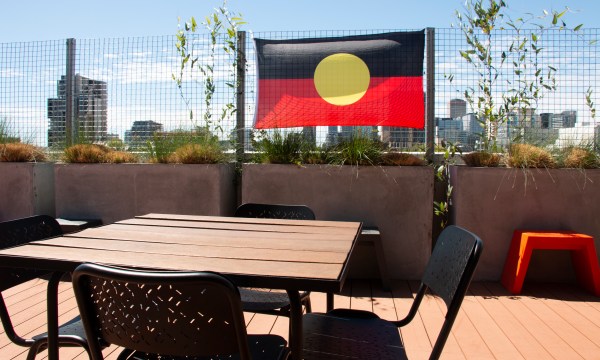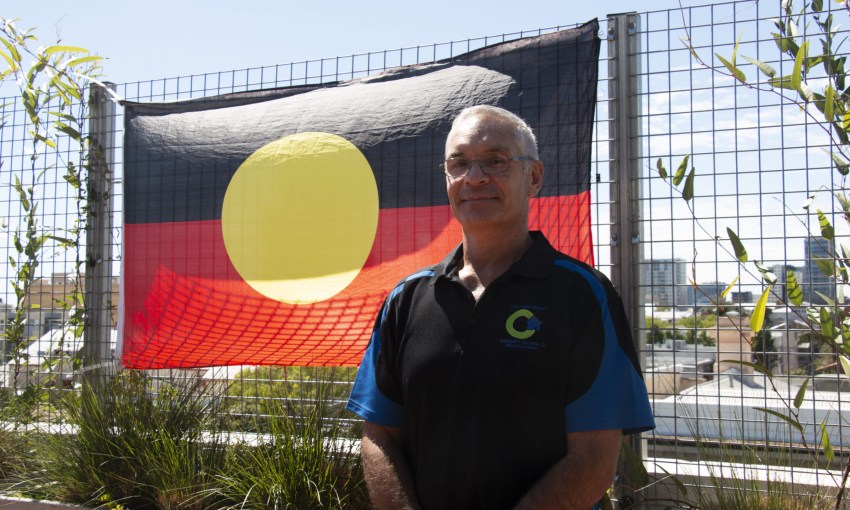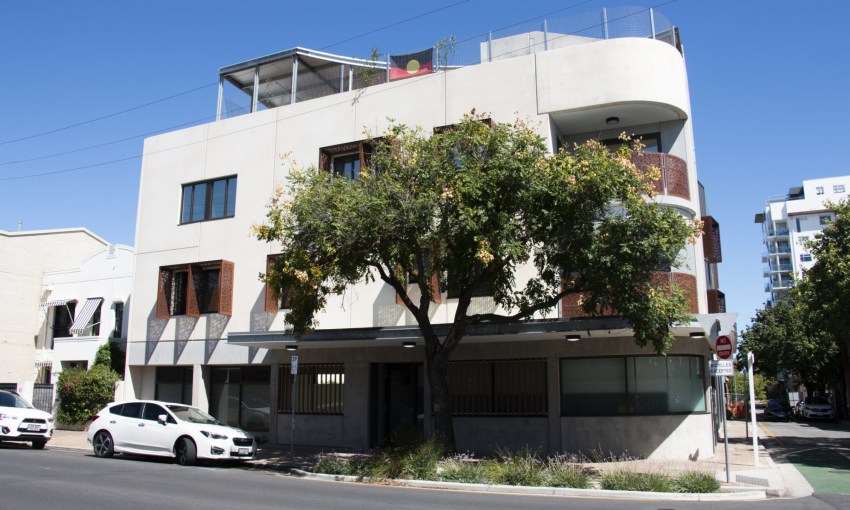At Tika Tirka, Ronald Rankine helps Indigenous students living away from their families continue their connection to culture and community as they transition to life after high school.
A home away from home for Indigenous students moving to the city
Housing officer Ronald Rankine welcomes CityMag into Tika Tirka, a multi-storey student accommodation building for Indigenous students from regional and remote SA.
Just as our tour begins, Ronald stops at a colourful map of pre-colonial Australia, where the eight contemporary states and territories have been erased and replaced with borders delineating the more than 250 Indigenous language groups known to exist.
For more information on applying for accommodation at Tika Tirka, read more here.
It’s a special moment for Ronald to see Tika Tirka residents pointing to the map, proudly showing friends and other residents where their mob is.
“We’re aware of where the Aboriginal students come from and issues they may face,” Ronald says of Tika Tirka’s unique benefits.
“There’s always a barrier and mental block of ‘I just can’t afford it’. We’ve eliminated that.”
Tika Tirka was constructed in 2019 with joint funding provided by the State and Federal Governments, and the building currently sleeps 16 students across its multiple levels with room for 20. The project gives Aboriginal students from remote and regional South Australian communities an affordable place to live while they pursue further education.
To be eligible, students must be aged between 18–26, enrolled in post-high school education and eligible for the Federal Government’s living allowance for Aboriginal and Torres Strait Islanders studying, ABSTUDY.
– Aidan Barbo
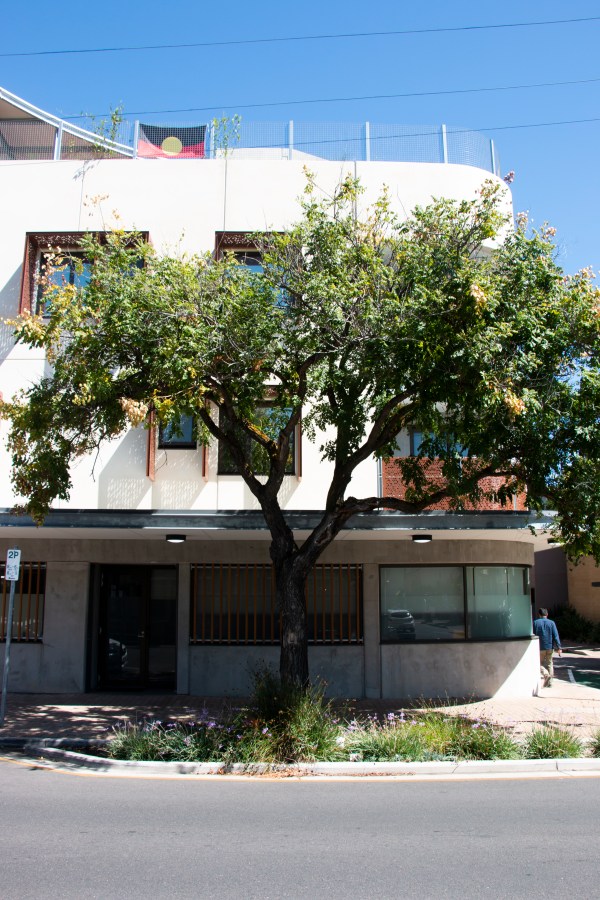
At the beginning of this year, not-for-profit community housing provider Aboriginal Community Housing was awarded the contract to deliver Tika Tirka’s services.
Janeane Dadleh is a support officer at Tika Tirka, and it’s her job to make the students feel “safe” and supported. This spans taking residents to medical appointments to calling up Centrelink when there are issues with ABSTUDY.
“We have to ensure that we’re supporting the young people in here to be connected out there,” Janeane says.
“We’re saying it’s a safe place because… a lot of the students, before they came to Tika Tirka, were worried they were going to lose their position as a student because they may have lost their housing.
“Something we have been doing recently is ensuring these people are on their ABSTUDY, and if they’re not we rectify that.”
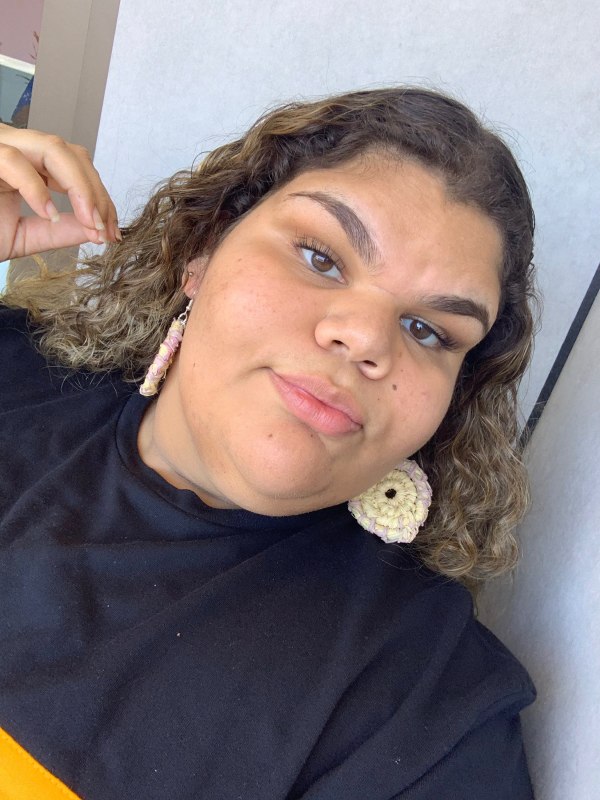
Tika Tirka resident Jaekiya Wilton. This picture: Supplied
When CityMag recently investigated SA universities and how they engage with First Nations students and knowledge, we heard money was a problem for students accessing higher education.
Janeane says the current ABSTUDY amount is “not enough”, particularly for students living away from their families located in regional or rural South Australia.
“A lot of people that I’ve been in contact with haven’t been able to study because they’ve not been able to afford the accommodation that’s out there,” she says.
For early childhood education student and Adnyamathanha woman Jaekiya Wilton, Tika Tirka’s means-tested residential payment was a lifeline.
Jaekiya is originally from Port Augusta but completed Year 11 and 12 at Immanuel College, as a recipient of the Smith Family Indigenous Youth Leadership Scholarship.
Straight out of high school, with no family living in the city, Jaekiya entered a “dark and gloomy” rental on her own and says she struggled financially.
Jaekiya was recommended to Tika Tirka through SA Housing, and when she signed up she became the building’s first resident. As opposed to a commercial rental, the rent and overall bills at Tika Tirka is only 30 per cent your income.
“I was alone and I was 19. It’s a really nice change living with people who have the same journey as me,” Jaekiya says.
It was also important for Jaekiya to take this opportunity and show her younger siblings and cousins from Port Augusta that they too have options.
“There are places you can go to that can help you with your study, to help you further brighten your pathway to a career, a decent job,” she says.
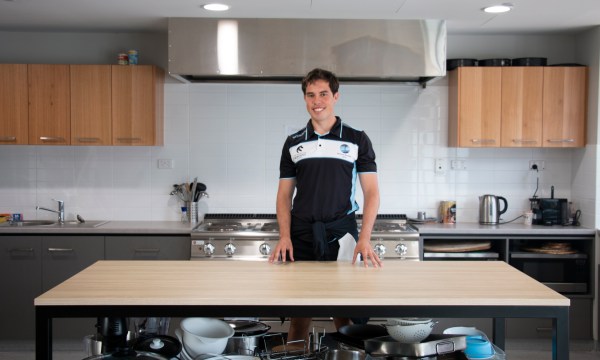
Tika Tirka resident Aidan Barbo say he feels an “obligation” to pursue a career in Aboriginal health due to the opportunities he’s received
Aidan Barbo is a Whadjuk Noongar man who only discovered his Indigenous heritage two years ago. When the pandemic hit in March last year, Aidan was living with his grandmother but was worried he would compromise her health.
The second-year University of Adelaide medicine student started looking around for alternative accommodation and settled with Tika Tirka nine months ago. Being here has made him to feel more connected with his Aboriginality.
“I’ve always struggled with my identity, so this place fills that void,” Aidan says.
“It’s just good to be around other Indigenous people. Since I’ve been more recently involved with my [Indigneous] family from Perth… and where I work right now – which is SAHMRI in the Aboriginal Health Equity unit – it’s just nice to know more about the culture; nice to know where people are from; the regions of Australia.
“I’ve even picked up a tiny bit of language, Pitjantjatjara.”
Tika Tirka has a three-year government-funded contract, and the staff hopes it will continue beyond this timeline. They also want similar sites set up in other cities, as they believe there is a clear need.
Ronald finishes our Tika Tirka tour by leading us to the roof. We ask if he would have stayed here when he was young, but he says he couldn’t go to university; he had children and needed to earn a living.
From the rooftop, we scan the city skyline, which is obscured by a large Aboriginal Flag pinned to a fence. “The kids did this,” Ronald says, smiling.
